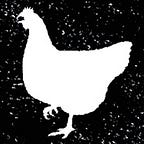Ursula Lake: A conversation with Charles Harper Webb
By Audrey Fong
Charles Harper Webb’s debut novel, Ursula Lake, follows a husband and wife trying to save their marriage and a rock musician trying to get his career back on track. Together, they find big trouble — natural and possibly supernatural — in the spellbinding wilds of British Columbia.
Webb is well-known for his poetry and has been called “Southern California’s most inventive and accessible poet.” He is the author of 12 poetry collections including Reading the Water, winner of the Kate Tufts Discovery Award and the Morse Poetry Prize. A former professional rock singer/guitarist and licensed psychotherapist, he is professor of English at California State University, Long Beach.
Audrey Fong: Ursula Lake is your first novel, but you have published several poetry collections before. What made you decide to write a novel?
Charles Harper Webb: Having written quite a few poems over quite a few years, I found myself wanting to do something new, and to reach a larger audience than (sadly) poetry usually does. Both as a reader and a writer, I’ve always been drawn to narrative. Many of my poems have strong narrative elements. I wanted to explore more fully my impulse to tell stories. After years of emphasizing compression in my poems, I wanted to stretch out and write something with physical heft. I wanted, too, to celebrate the wilds of British Columbia: one of the most beautiful and mysterious places I’ve ever been. I wanted to create a story that would be exciting and fun to read — a genuine thriller — but would also be of high literary quality, and ring true psychologically and otherwise. I’m fascinated by the human psyche, and wanted to delve deeply into character, and chart its change over the course of a book. I wanted to illuminate corners of the human psyche that normally remain hidden — what Carl Jung called “the shadow.” This can be a dangerous and frightening place. Without it, though, we as a species would not have survived.
AF: How is the process of writing a novel different from writing poetry?
CHW: The novel, by definition, involves a larger commitment of time. If a poem doesn’t work, it’s easy to say, “Oh well,” and move on to the next. A novel that doesn’t work represents a greater loss. Trying to write one is a much bigger gamble.
I like the often-used metaphor of running. A poem is a sprint; a novel is a marathon. The analogy, though, is not perfect. In a well-written novel, many passages sprint. Once the rough draft of a poem is complete, revision can become a marathon.
The forms also overlap in many ways. Poetry-writing skills can benefit prose, just as prose-writing skills can benefit poetry. I’ve tried to bring both kinds of skills to bear on Ursula Lake. I hope that my prose embodies poetic virtues such as rhythm, conciseness, strong imagery, and potent metaphor, just as I hope my poetry makes good use of the devices of narrative, not the least of which is entertainment.
AF: That’s very interesting — the idea that in a novel many passages do sprint. Your novel is described as “a fast-paced, sexy, and very scary literary thriller.” Could you share with our readers what your thriller is about?
CHW: Former best friends Scott and Errol meet unexpectedly at Oso Lake, a remote Canadian fly-fishing paradise where, five years before, fresh out of college, they had the time of their lives. Their situations, though, have changed, their high hopes quashed by workaday realities and, in Errol’s case, marriage to Claire, who has come with him, trying to stave off divorce.
But Oso Lake has also changed. The fall before, a woman’s severed head was left in a campfire pit beside the lake. The shadow cast by her murder is darkened further by a fire-scarred white truck driver who claims to be a long-dead Native shaman, and has plans to eradicate not only Scott, Errol, and Claire, but all of western civilization. The beauty of the wilderness becomes, every day, more threatening and perverse. But the worst danger the vacationers face may be themselves.
AF: Ooh, that sounds like quite the crime thriller. You mentioned during the Craft of Writing Panel at LitFest Pasadena that you used to live in the Pacific Northwest and that you’re personally a fan of flyfishing. The novel takes place in British Columbia and includes two friends flyfishing. How did your personal experience impact the novel?
CHW: During the time I lived in Seattle, I took several fishing trips into northern British Columbia. My fishing friend and I would climb into our trucks and drive north, stopping to camp at lakes and rivers that where we wanted to fish. British Columbia was, and still is, supremely beautiful, haunting, and wild in every sense. It’s a place where the law and the norms of civilization can feel very far away — where people may behave in ways they never would “back home.” In the wild, there may not be someone to catch you if you fall.
AF: One last question before we go — what do you hope readers will take away from your novel?
CHW: First of all, I hope that readers will be engrossed and entertained — sometimes touched, sometimes thrilled, sometimes horrified, with time-outs for laughter, too. I hope readers will take away a strong sense that “there are more things in heaven and Earth than are dreamt of,” etc. I hope that my characters and scenes will stick in readers’ brains, and become part of their lived experiences the way so many characters and scenes in fiction have become part of mine.
Grab a copy of Ursula Lake and support an independent bookstore while doing so here.
